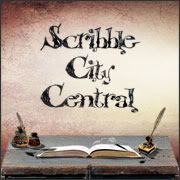
"How strange that we have to make these public declarations of our secrets,' said Ted Hughes in a letter to a friend, with reference to the publication of Birthday Letters, and in a British paper today is the headline 'The Healing Power of Putting Pen To Paper'. Creative types of all kinds--writers, songwriters, poets--have found solace in putting their pain down in black and white. There goes Amy Winehouse making sense of an unfaithful partner with with her lyrics for Back to Black , there is Dylan Thomas agonising in poetry over the death of his father with Do Not Go Gentle Into That Good Night, there is William Styron with his memoir of madness, Darkness Visible.
Since I blogged about depression a short while ago, I have had many kind expressions of support which have helped me to start to find a way through again. What struck home most though was the number of creative people who wondered whether, perhaps, this dark place, this 'earth sore' as one friend put it, is the price we pay for our visits from the angelic Muse of inspiration. I do know that a very eminent chiropractor, who treats many literary types, told me once that almost without exception we are all literally 'off our rockers'--a phrase which has come to mean mad. The 'rocker' is apparently a small bone at the bottom of the back of the skull. Writers, artists and poets are inclined to have it out of place. So this is a physical clue. But mentally? Why do so many of us have days when it is unrelievedly dark amid the blaze of noon?
If you were to trace a path through literary history, especially the literary history of poetry, you would find a trail of evidence. Pain internalised festers, pain crafted and honed and bound into the form of a sonnet or some other poetic form takes a step outside the mind, and by doing so begins to make sense. At the very least it is a release of emotion. By writing painful things down, exposing our innermost secrets to the light of day, we begin to heal them. For myself, having been badly bullied as a child, writing about that experience in a fictional form was cathartic in the extreme. Linnet Perry in Hootcat Hill is not me--nowhere close. But fictionalising some of my own painful childhood experience into hers helped me to face it and put it behind me. I have not yet begun to make sense of my depression through fiction--though I expect that one day I will. However, looking through old files, I found that I had tried to make sense of it, as so many others have, through poetry (see below). I have been in the dark place before as I am still, partly, now, and will be so again. But I will continue to try to make sense of it by writing it down, and I will not be alone in doing so.
Nil, nisi, nihil, nix
Might they be monsters?
They come on dark days and stormy nights
and bash in the outward signs and symbols
of your life, till all you thought you knew
about yourself is crumpled metal panels
and glass on a dirty pavement
with the rain falling down.
And if a familiar knight in shining black jeans
should come running by,
then they will take the crowbar to his face too, until
it becomes an uncharted territory of bruise and bone.
They are not totally cruel. They will allow you one
long long kiss on his bloody-lipped swollen mouth,
and ten short seconds
to whisper red-tasting messages of love to
your family. Then there will be hard hands
under each armpit and a faceless dragging journey
away from the blood and the broken headlights.
You’re on your own now, babe.
(And always have been hisses an ancient echo).
So here you are flying—it’s very sudden—
almost pleasurably swooping along
over the cute corn-cut patchwork of England
listening to a maybe voice of hope on the wind.
Then it’s down down down as
they handle you into the sloped
cream room with wooden slatted floors
and only one blank window—
the place where nothing is in balance, and silent
voices shout questions of sorcery and power
which you cannot answer.
There is a polished walnut wardrobe on the
right-hand side of the room,
just halfway down. When the silent ones
leave for a tea-break you open it,
and out from the empty mothball shelves blows
the secret name of the wind.
It begins with ‘M’.
If only you could remember it
you would be free.
But until then you must climb in
and shut up mind and wardrobe doors
very tight, so that
when they return into the now-empty room,
they do not discover
that the wind has gone missing too.
(Copyright Lucy Coats 2009)
Might they be monsters?
They come on dark days and stormy nights
and bash in the outward signs and symbols
of your life, till all you thought you knew
about yourself is crumpled metal panels
and glass on a dirty pavement
with the rain falling down.
And if a familiar knight in shining black jeans
should come running by,
then they will take the crowbar to his face too, until
it becomes an uncharted territory of bruise and bone.
They are not totally cruel. They will allow you one
long long kiss on his bloody-lipped swollen mouth,
and ten short seconds
to whisper red-tasting messages of love to
your family. Then there will be hard hands
under each armpit and a faceless dragging journey
away from the blood and the broken headlights.
You’re on your own now, babe.
(And always have been hisses an ancient echo).
So here you are flying—it’s very sudden—
almost pleasurably swooping along
over the cute corn-cut patchwork of England
listening to a maybe voice of hope on the wind.
Then it’s down down down as
they handle you into the sloped
cream room with wooden slatted floors
and only one blank window—
the place where nothing is in balance, and silent
voices shout questions of sorcery and power
which you cannot answer.
There is a polished walnut wardrobe on the
right-hand side of the room,
just halfway down. When the silent ones
leave for a tea-break you open it,
and out from the empty mothball shelves blows
the secret name of the wind.
It begins with ‘M’.
If only you could remember it
you would be free.
But until then you must climb in
and shut up mind and wardrobe doors
very tight, so that
when they return into the now-empty room,
they do not discover
that the wind has gone missing too.
(Copyright Lucy Coats 2009)
















4 comments:
Ah, I would guess most good writing comes from strong emotion. It does not have to be depression. It could be love, hate, happiness, or confusion. We all have a natural urge to express our emotions.
What a thoughtful blog. We all know someone who suffers from depression. My mother had a "nervous breakdown" early in life. She was always the one who reached out to others in the days when depression was something you hid away like the family's dirty laundry.
Carolyn
http://blog.seattlepi.nwsource.com/lynscircle/
Orson Scott Card says that a good place to start in writing is with a character who hurts - because those who hurt the most have the most impulse to change things. Perhaps that's true of writers as well as characters?
Yes, I think you are right about that, Rhiannon, as is OSC. And sometimes the writer's hurt is metamorphosed into the character's hurt and thereby healed by the act of changing.
Post a Comment